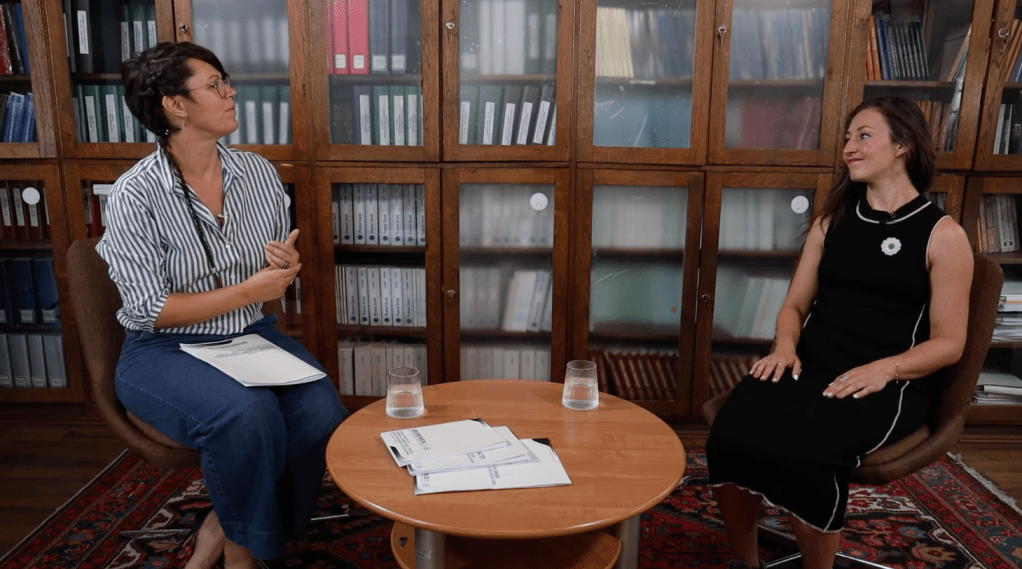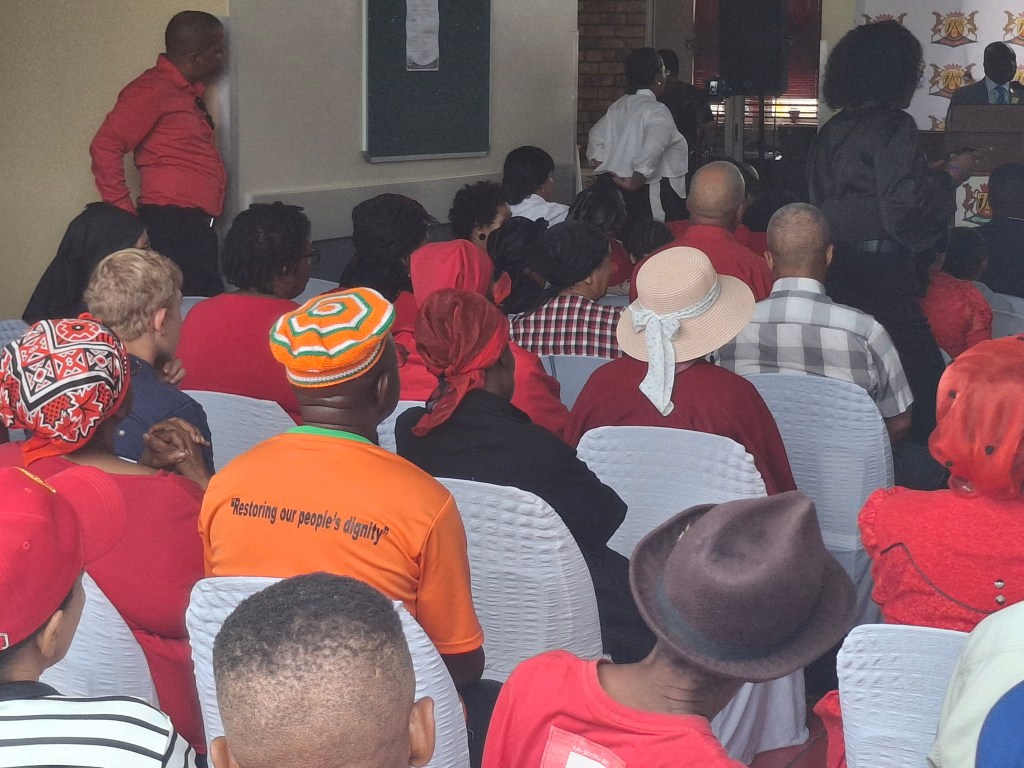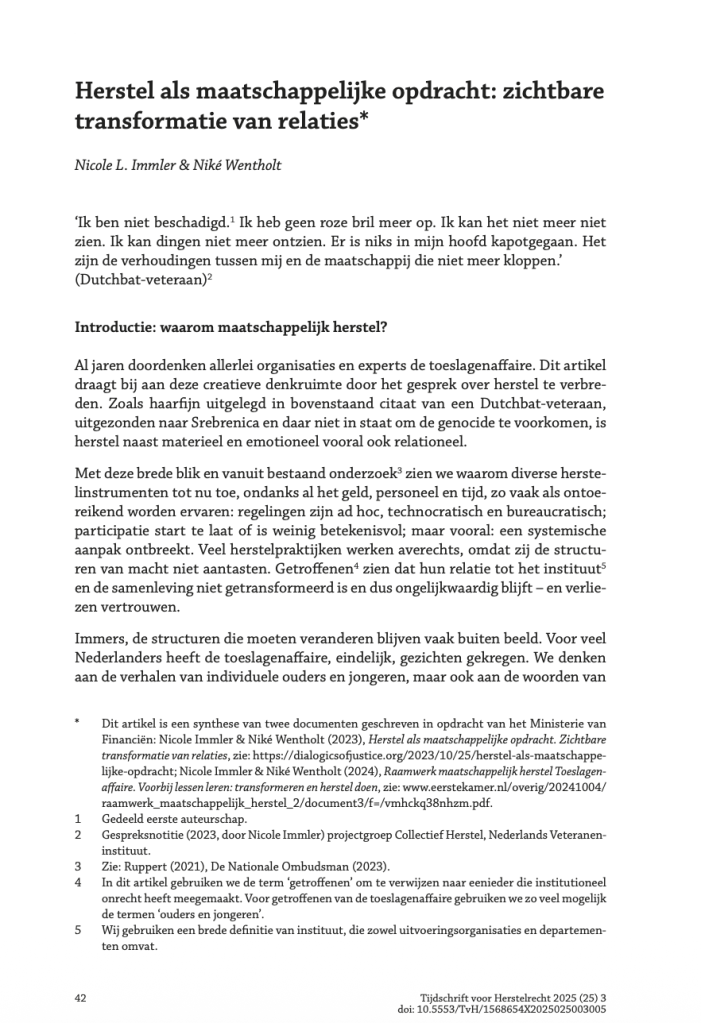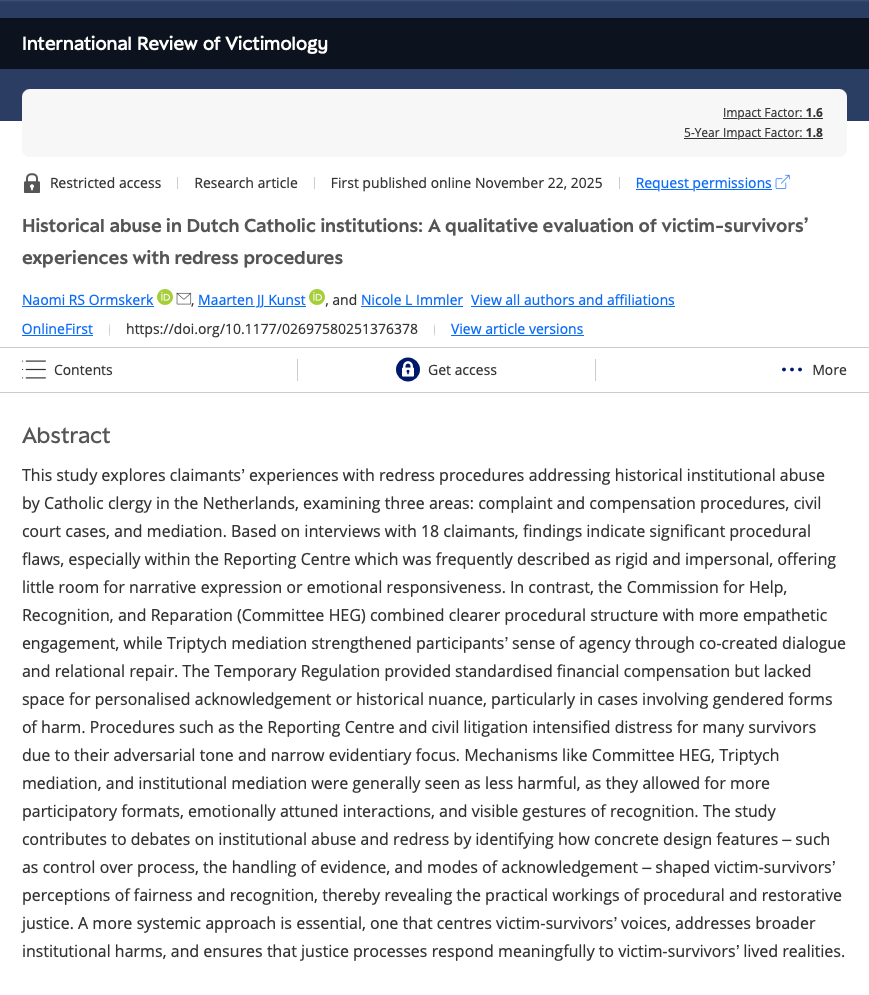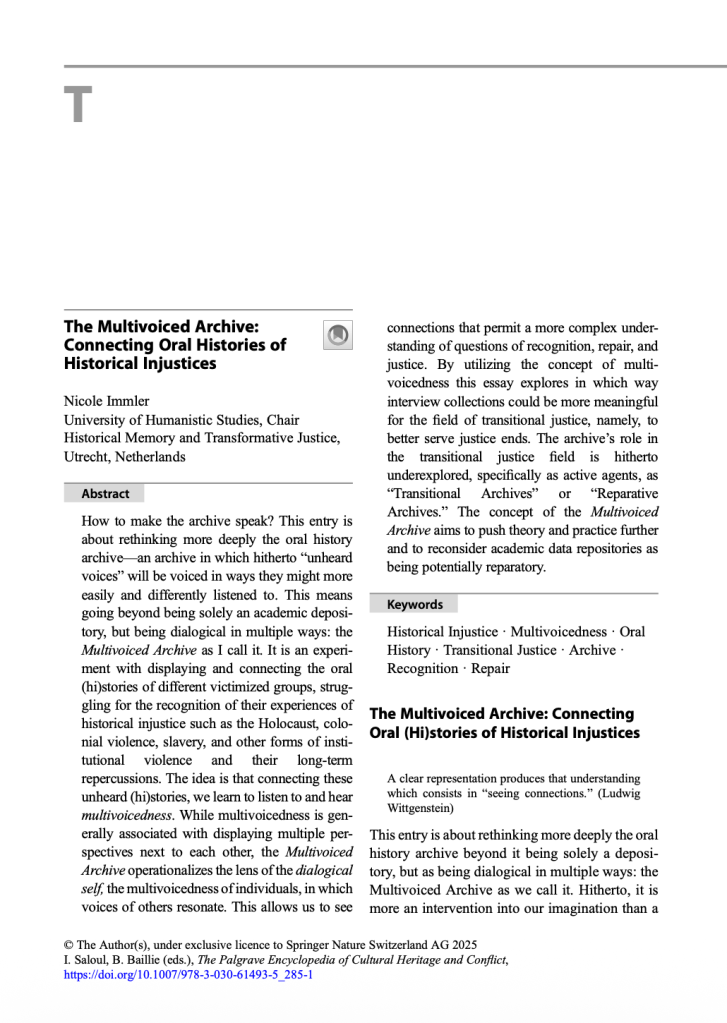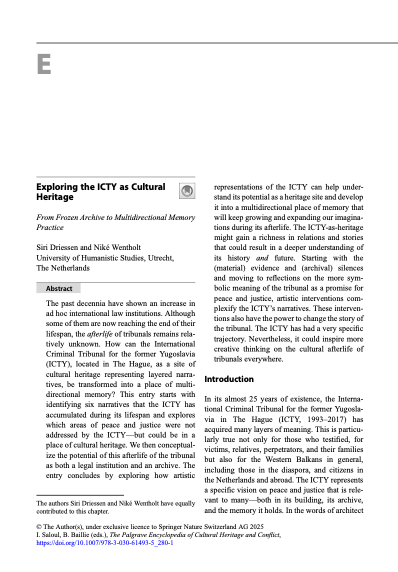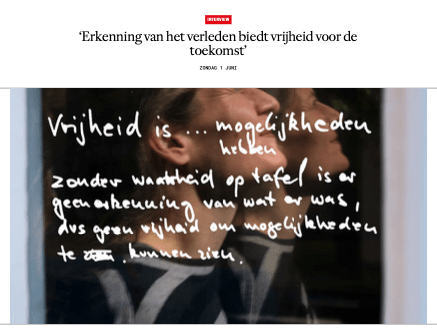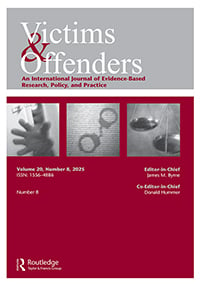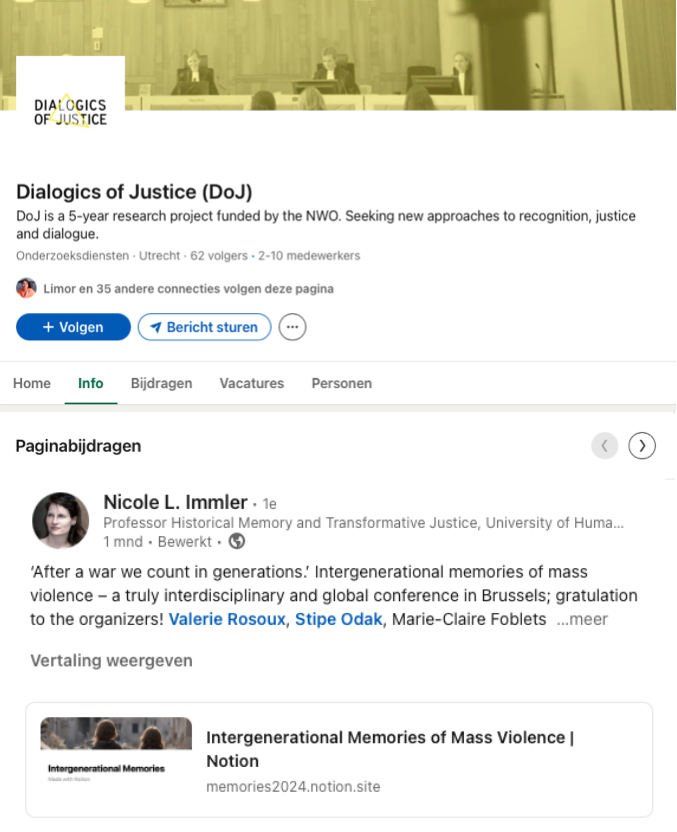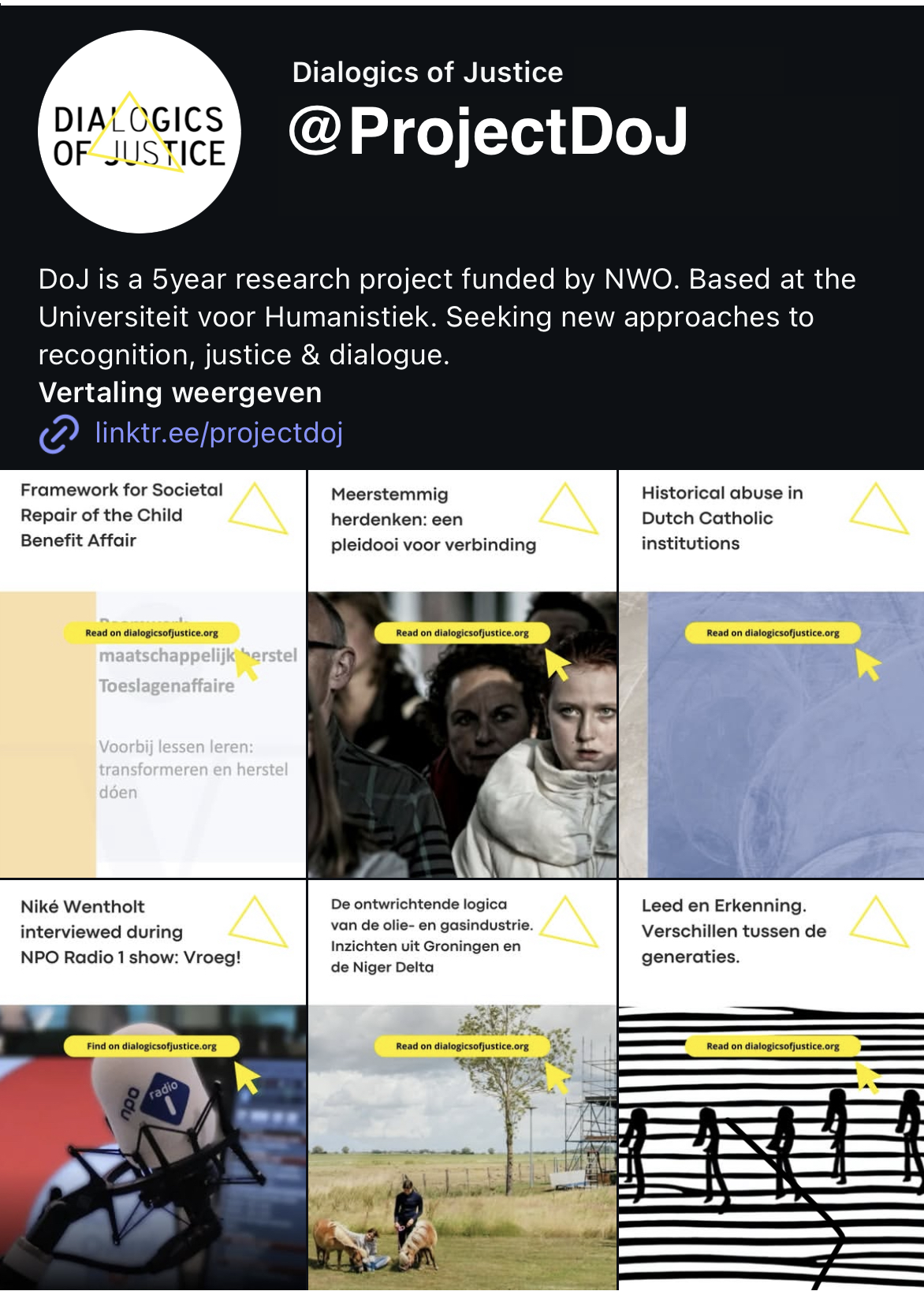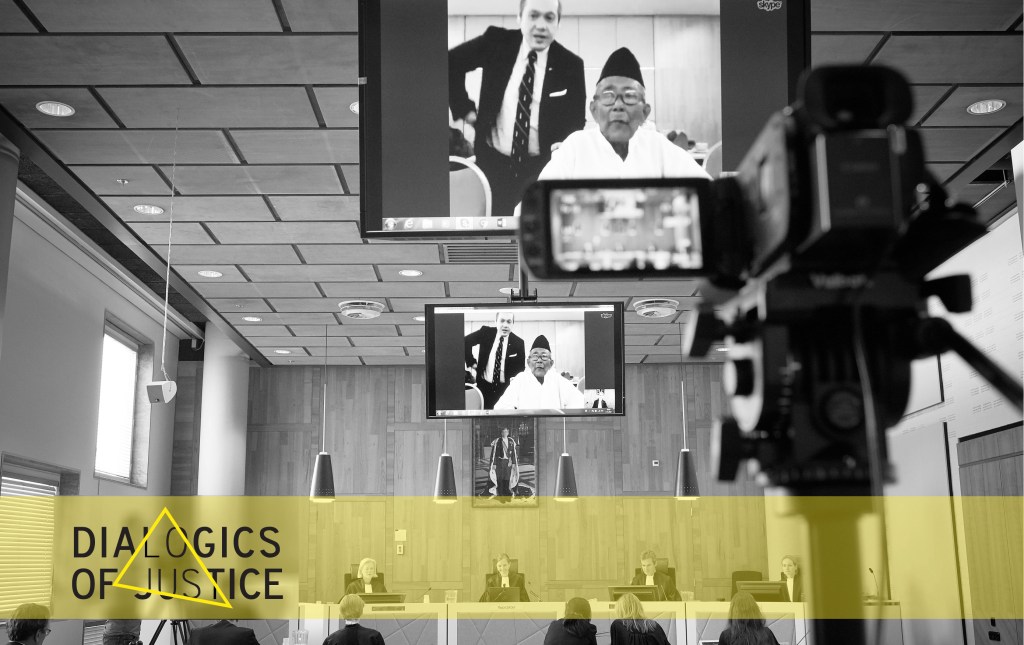
Assessing Recognition and Reparation Procedures for Historical Injustice
Dialogics of Justice
The last decade has witnessed an increase in civil proceedings brought before Dutch district courts by people adversely affected by colonial violence, military missions, sexual abuse, and environmental harm. Does legal action against institutions such as the Dutch state, the military, the church, and a multinational bring about the recognition and justice that people long for? Which conditions are conducive, and which less favourable for people to feel recognized? And what is the role played by state- and non-state institutions in enabling recognition procedures to become transformative?
In this five-year research project we as an interdisciplinary team aim to respond to the urgent need for more in-depth knowledge of how accountability is sought for past (or ongoing) transgressions. Through this knowledge we hope to contribute to making recognition and reparation procedures more effective and transformative. This cross-case study broadens the classic Transitional Justice focus on mass human rights violations towards social, economic, and ecological violence.
Dialogics of Justice is based at the University of Humanistic Studies in Utrecht and funded by a VICI-grant from the Dutch Research Council NWO.
Explore our projects here:
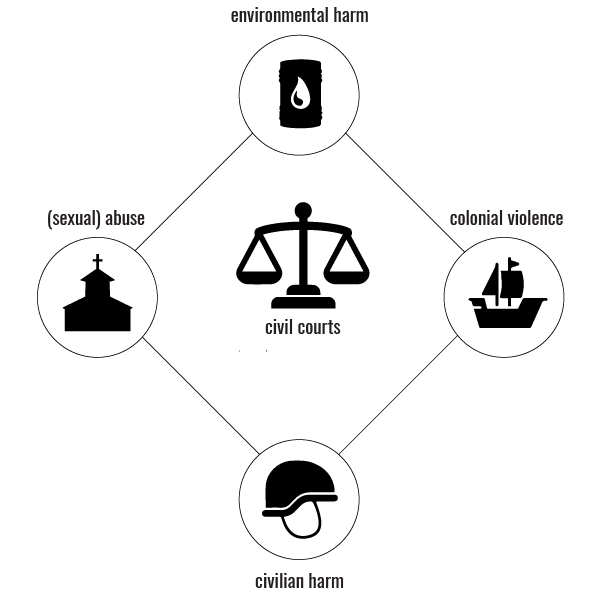
Latest
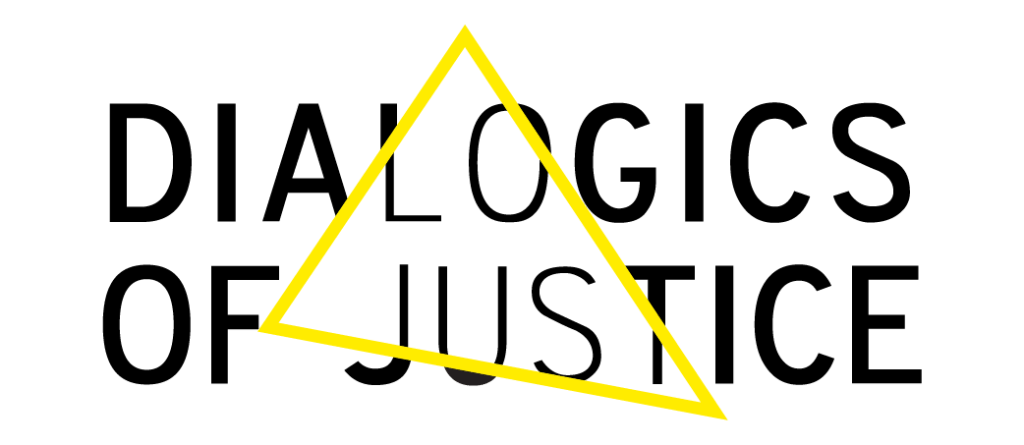

Dialogics of Justice has been realised with the VICI grant of the NWO Talent Programme

